Category Archive for "Health Financing"

New Paper: Breaking Barriers to Universal Health Coverage: Insights from Georgia’s Chronic Disease Medicine Program
CIF researchers Alisa Tsuladze, Akaki Zoidze, Nino Kotrikadze, and George Gotsadze, together with Janina Stauke, have published a new article in SSM – Health Systems. The paper, entitled “Breaking barriers to universal health coverage: Insights from Georgia’s Chronic Disease Medicine…
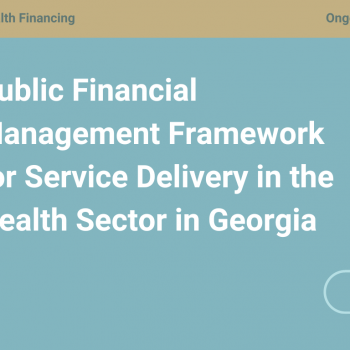
Public Financial Management Framework for Service Delivery in the Health Sector in Georgia
The study will reveal the systemic weaknesses that have to be addressed by the Government by using, the public finance management (PFM), in Health Toolkit Version 2.7, developed by the Bank in October 2019.
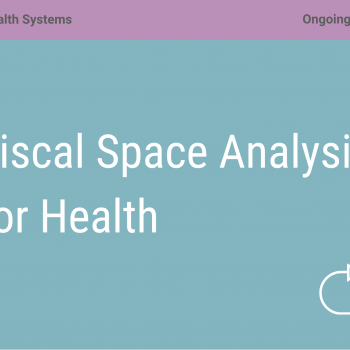
Fiscal Space Analysis for Health
As part of the World Bank’s support to improving health service delivery in the country and efforts to explore prospects of harnessing domestic resources for health, Curatio International Foundation conducts fiscal space analysis in collaboration with the Government of Georgia to maximize the achievement of the health sector objectives within the overall macroeconomic and fiscal realities of the country

Paper: Soviet legacy is still pervasive in health policy and systems research in the post-Soviet states
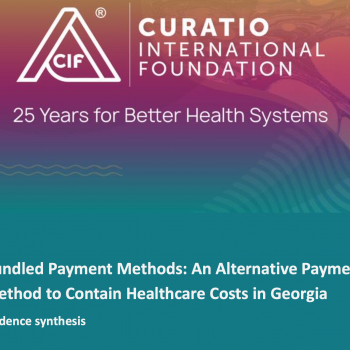
Bundled Payment Methods: An Alternative Payment Method to Contain Healthcare Costs in Georgia
Since there is a considerable growth in healthcare expenditure in Georgia, driven by both supply and demand, the health system would benefit by implementing alternative payment models that will reduce costs and improve the quality of care.
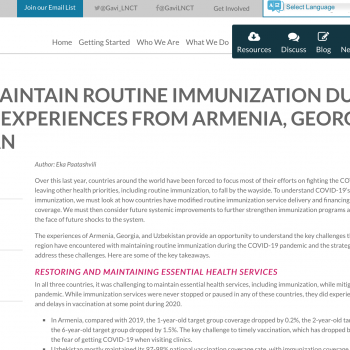
HOW TO MAINTAIN ROUTINE IMMUNIZATION DURING COVID-19? EXPERIENCES FROM ARMENIA, GEORGIA, AND UZBEKISTAN
Author: Eka Paatashvili Over this last year, countries around the world have been forced to focus most of their efforts on fighting the COVID-19 pandemic, potentially leaving other health priorities, including routine immunization, to fall by the wayside. To understand…
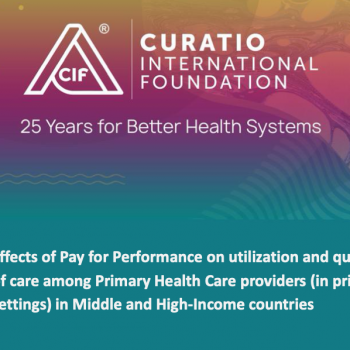
Effects of Pay for Performance on utilization and quality of care among Primary Health Care providers in Middle and High-Income countries
The evidence review summarizes the existing literature on P4P effectiveness on utilization and quality of primary health care in private settings in middle-income and high- income countries. The document and its findings are especially relevant to Georgia.
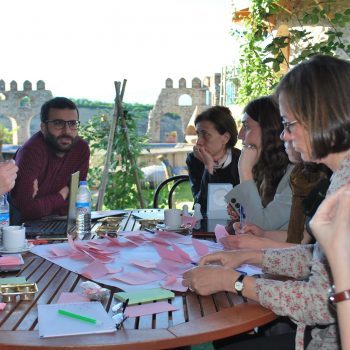
Doing embedded development and research – reflections on the start of the Results4TB programme
Georgia has a high overall tuberculosis treatment success rate, but with wide geographical variation, and a high loss to follow up. Treatment success rate of drug-sensitive patients varies from 50% to 100%. Even more worrying has been the relatively low treatment success rates for multi-drug resistant TB patients, at around 56%.
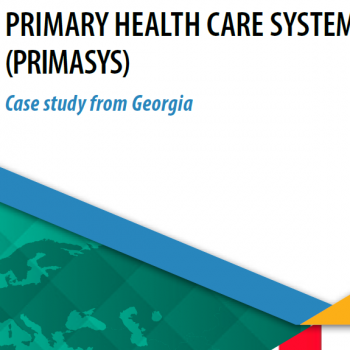
Primary Health Care Systems: Georgia case study
Curatio International Foundation publishes Georgia case study of primary health care system (PRIMASYS). The PRIMASYS case study covers key aspects of primary health care system, including policy development and implementation, financing, integration of primary health care into comprehensive health systems, scope, quality and coverage of care, governance and organization, and monitoring and evaluation of system performance.
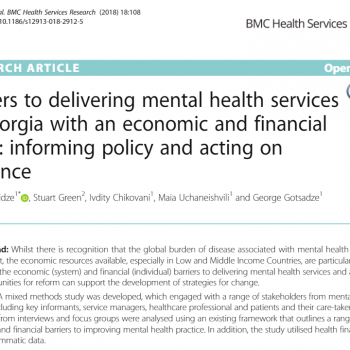
Article: Barriers to delivering mental health services in Georgia with an economic and financial focus: informing policy and acting on evidence
A new paper discusses the economic and financial barriers to delivering mental health services in Georgia and assessing the opportunities for reform that can support the development of strategies for change.
